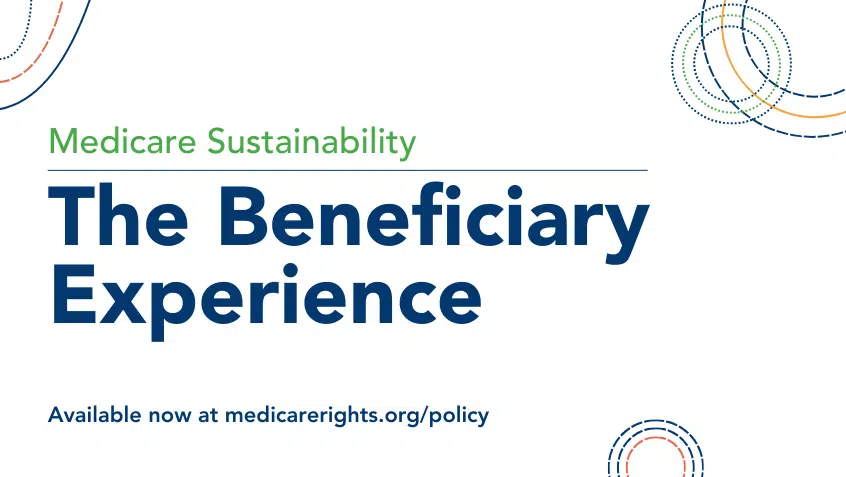Join Us Live for a Discussion on Medicare, Democracy, and the Future of Health Care
New Issue Brief Outlines Ways Medicare Should Support Family Caregivers

November is National Family Caregivers Month, and the Commonwealth Fund has released a timely issue brief that outlines ways Medicare could be improved to better support family caregivers. These short- and long-term policies fall into four categories: covering in-home services and supports, providing financial support, enabling better access to information, and promoting research on family caregiving.
Millions of people with Medicare need long-term services and supports (LTSS) to help with activities of daily living such as bathing and dressing, medical care, prescription management, housekeeping and other chores, transportation, and other supports to live safely and independently.
However, Medicare generally does not cover this care, forcing many beneficiaries to pay out of pocket, rely on family and unpaid caregivers, or both. The program also lacks coverage for most caregiver supports, leaving many families scrambling to afford and supply the necessary care. People enrolled in Medicaid, including those who also have Medicare, typically have access to some financial and structural assistance, including pay for family caregivers. But this and other Medicaid LTSS coverage—in particular for Home and Community Based Services (HCBS)—can be limited and difficult to navigate.
And the stakes are high. Without community-based care, some Medicare-only beneficiaries may be forced to spend down to Medicaid to qualify for help. Even then, because Medicaid HCBS is woefully underfunded, they—as well as Medicare beneficiaries who can privately pay for institutional long-term care—may have to leave their homes and communities to live in a nursing home.
Family caregivers play a crucial role in preventing those outcomes. Previous analysis explains that the vast majority (92%) of people with LTSS needs who live outside of institutions receive unpaid assistance from family and friends. This caregiving workforce—about 38 million people—provides services with a staggering estimated economic value of over $600 billion annually. This value is not created without cost. Nearly 80% of family caregivers report spending a quarter of their own income (on average) in providing these services; Black and Latinx families spend even more, with expenses totaling 34% and 47% of their income, respectively. Many also face employment costs; six in ten have experienced at least one negative impact or change in their employment situation due to caregiving.
Commonwealth’s issue brief highlights many changes that could be made to the Medicare program to enable families to better cope with in-home care needs. For example, the brief recommends eliminating the “homebound” requirement in the Medicare home health benefit and better ensuring that people with complex or chronic needs have access to home health. This is an important and needed change. The definition of “homebound” currently causes confusion for beneficiaries and providers alike because it does not mean the person is literally unable to leave their home; eliminating it in home health would increase access to this vital care.
In another section, the brief outlines ways Medicare could help pay for caregiver services, mirroring some of the available payments through Medicaid. Other policy options include modernizing Medicare benefits, reimbursing families for out-of-pocket caregiving expenses, and collecting better data to analyze caregivers’ burden. A handful of the policies have cropped up in recent proposed rules from the Biden-Harris administration, including a recommendation that Medicare Advantage plans do more to educate enrollees about supplemental benefits.
Throughout the brief, Commonwealth points out areas where Medicare lags behind other programs and beneficiary needs, creating a system that strands too many people when they need more assistance, not less. At Medicare Rights, we know how devastating this can be, and that family caregivers are a vital component of many beneficiaries’ care teams. We will continue to urge policymakers to ensure they are supported across the health care system, while pushing for changes to underlying policies that limit needed care.
Read more about gaps in Medicare coverage around long-term services and supports.
Show Comments
We welcome thoughtful, respectful discussion on our website. To maintain a safe and constructive environment, comments that include profanity or violent, threatening language will be hidden. We may ban commentors who repeatedly cross these guidelines.
Help Us Protect & Strengthen Medicare.
Donate today and make a lasting impact.
The Latest
Most Read
Add Medicare to Your Inbox
Sign up to receive Medicare news, policy developments, and other useful updates from the Medicare Rights.
View this profile on InstagramMedicare Rights Center (@medicarerights) • Instagram photos and videos









